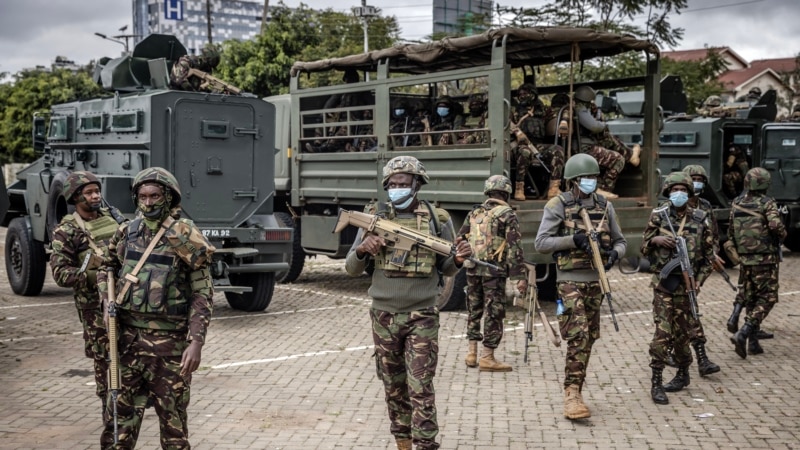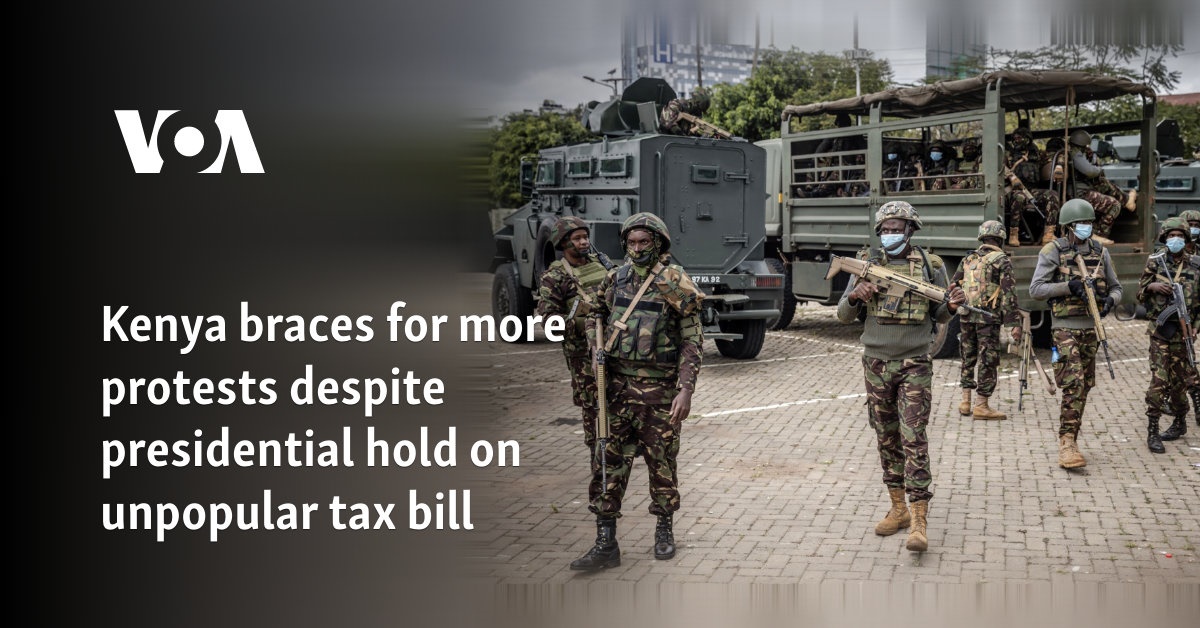This website uses cookies so that we can provide you with the best user experience possible. Cookie information is stored in your browser and performs functions such as recognising you when you return to our website and helping our team to understand which sections of the website you find most interesting and useful.


Kenya braced for more protests in the capital, Nairobi, Thursday, despite an announcement by President William Ruto to put on hold an unpopular tax bill that sparked deadly riots.
Witnesses in the capital reported police set up roadblocks on streets leading to the presidential palace.
In an address to the nation Wednesday, Ruto defended the move to raise taxes on basic goods such bread and cooking oil, saying it was necessary to reduce the country’s massive debt of nearly $80 billion. But he admitted the public did not support the finance bill and decided not to sign it.
He spoke one day after more than 20 people were killed during protests against the bill that led to clashes with police.
"I concede and therefore I will not sign the 2024 finance bill. It shall subsequently be withdrawn and that shall be our collective position," Ruto said in a statement to lawmakers from the State House on Wednesday.
The bill won approval in Parliament on Tuesday, but lawmakers fled the scene as clashes between police and protesters mounted and hundreds of demonstrators stormed the complex. Parts of the Parliament were set on fire and burned for hours.
Late Tuesday evening, the Kenyan president condemned protesters' storming of the Parliament as treasonous and a threat to national security.
On Wednesday, human rights defenders and good governance organizations gathered at Kenya Human Rights Commission to condemn the violence against the protesters and accused the president of being accountable for what had happened on Tuesday.
"There's absolutely nothing wrong with Kenyans getting on the streets to voice themselves. This is a constitutional provision as part of the Kenyan constitution 2010," said Grace Wangechi, a human rights and social development expert and the executive director of Independent Medico Legal Unit, an organization created in 1993 to protest against torture in Kenya.
Lorna Dias, a human rights defender and executive coordinator of Gay and Lesbian Coalition of Kenya, said, "There's nothing that justifies the use of live bullets on protesters. The destruction of property that happened on the streets was a security failure and this regime should take the blame," Dias said.
Deputy President of Kenya Rigathi Gachagua, who also addressed the nation from the coastal city of Mombasa, said he sympathizes with the president but blamed the National Intelligence Service chief, Noordin Haji, for Tuesday’s violence.
Gachagua said that had the National Intelligence Service "briefed the president that this bill was unpopular with the Kenyan people, there would not have been deaths and … mayhem," he said.
There was no immediate response from the intelligence service.
The deputy president asked the protesters to call off other planned protests tomorrow, saying that when that happens, "we can begin an honest conversation on how to work on our country."



 Africana55 Radio
Africana55 Radio 
